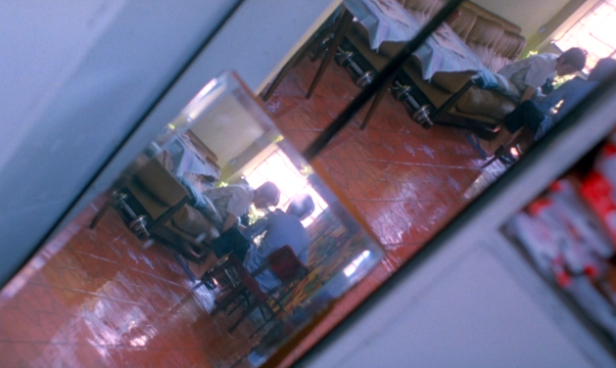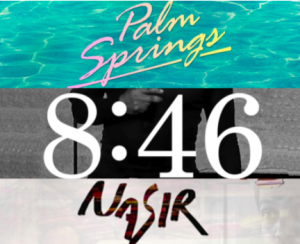“Chungking Express” (1994): Chunky chicken soup, the movie
It’s time to revisit 1994 to forget about 2020 for a while
August 19, 2020
Author’s Note: This is not an English language movie, and I’ve only ever seen it in its original Chinese version. If subtitles are enough to keep you from watching a movie, then stop reading, this movie isn’t for you. Go read a book or something.
In a world of depression, depravity, and general ennui, sometimes what you need is a good comfort food movie. There are the mac & cheeses, like Judd Apatow comedies, the brownies, like Studio Ghibli movies, and a whole assortment of other rich and tasty dishes. And then there’s “Chungking Express”, a delicious stew made by a team of Michelin Star chefs, lovingly crafted for your sensory pleasure and maximum comfort, and served to you with a warm wool blanket on the coldest day of the year. Food analogies aside, “Chungking Express” is a pure joy from start to finish. Time is Hong Kong director Wong Kar-wai’s plaything as he rockets you through two love stories carried by four impossibly charismatic leads, resulting in one of the most viscerally pleasant movies ever made.“Chungking Express” has two distinct halves, which follow two incredibly different love stories with a key similarity: the men in the relationships are cops who’ve just gone through break-ups and are at a standstill in life, and the women live far more proactive lives which could be improved through a relationship. Each relationship is interesting enough on its own but viewed together, it’s a far more emotionally resonant experience.
The first half follows Officer 223, He Zhiwu, after his breakup with a girl named May. He’s given himself 30 days to wait for May to call back, and will give up on his relationship with her if she doesn’t call him by May 1st. At the same time, this half follows the enigmatic Woman in a Blonde Wig, who seems to be running some sort of drug cartel. One of her clients has escaped, and she has to get him back before May 1st, or else she’ll probably be killed. The second half follows the unnamed Officer 663, after his breakup with a flight attendant, who was tired of the lack of variety in their relationship. Playing off of him is Faye, portrayed iconically by pop star Faye Wong. She’s a carefree drifter who’s currently stuck working at her cousin’s food stand, the Midnight Express. Time in this segment is far less rigid, with entire weeks sometimes going by in the span of a jump cut.
Along with having very different plots, the visual stylings of the halves of “Chungking Express” are incredibly different, even using different cinematographers. Andrew Lau shot the first half and employs the use of far more reds and yellows than the second. Both halves have heavy hand-held camera use, but since the first half is more action-oriented, shots are generally more frenetic, and use a peculiar low frame rate slow-motion that heightens the confusion in said action scenes. Christopher Doyle shot the second half, which is far heavier on blue, which contributes to the laid back tone of the second half. Both segments are impeccably shot, with each frame, if not carrying a specific message, clearly conveying emotion while also being heart-stoppingly beautiful.
With all this said, the most prominent visual of the film, regardless of the cinematographer, is Hong Kong itself. The movie isn’t one for establishing shots of the city because of its focus on interpersonal dynamics, but the striking difference between each location, along with the film’s emphasis on repetition, lets you familiarize yourself with the small portion of the city that the characters inhabit. This way, Hong Kong almost becomes a character in its own right, with ebbs and flows in its emotion just like any of the people in the story.
“Chungking Express” is a movie deeply entrenched in repetition. Characters are hung up on the same routines of eating the same food, listening to the same music, or just continuing a life that they know isn’t ideal for them. What makes “Chungking Express” such a satisfying experience is watching these characters who are lovable and easily relatable realize that they need change, and whether or not they end up with a partner in the end, become better people for it. That’s what makes it such a great comfort movie in the end. No matter how beautiful the visuals, how funny the characters and their quirks, or no matter how catchy the soundtrack, it’s seeing these characters acknowledge the repetition in their lives and working to change it which puts a massive grin on my face throughout just about the whole movie. If you’re feeling down, lost, or even just want to watch a movie that makes you happy, watch “Chungking Express”, it’s a wonderful elixir.








